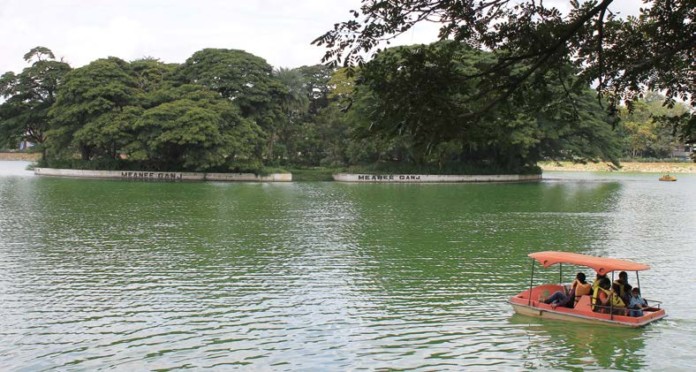Environment protection groups, Save Bangalore Lakes Trust (SBLT) and Namma Bengaluru Foundation (NBF), have brought out a report on the encroachment of lakes in the City.
The 209-page report, titled ‘Phase 1-Lake Encroachment Report,’ has been compiled after surveying 43 lakes. It essentially contains information on the total area, encroachment, BBMP action plan and survey number of the lakes, besides maps and satellite images.
While 16 lakes were visited by volunteers from NBF, under the guidance of BBMP officers, information on the 27 others has been provided by the SBLT team with assistance from lake associations and residents in the vicinity of the water bodies. The volunteers started the survey in January this year and compiled the report recently.
Also, an official study that was meant to look at the way environmental clearances in Karnataka were given out in the last 10 years has turned out to be a virtual indictment of the entire process itself. There is not a single project which has got the top two grades in the rankings that were compiled by the Environmental Management and Policy Research Institute (EMPRI), an autonomous body established by the state government. The damning study, which was conducted by EMPRI researchers and three independent consultants, has been given a quiet burial. The decision to hold back the findings was taken at a governing body meeting of EMPRI on April 2.
The EMPRI co-chairman and secretary to the ecology and environment department, Ramachandra, said at the meeting that since the State Environment Clearance Committee (SECC) had been discontinued, the study had lost its relevance. It is, however, not the SECC itself, but the findings of the EMPRI team that is glaring. The researchers found innumerable counts of environmental violations, and loopholes in the SECC system. SECC documentation was either sketchy or not available at all. Had the government published the report, it would have been a sort of admission that environmental clearances accorded in the last 10 years had been deeply flawed.
The study in question had been commissioned by the department of forest, ecology and environment (DFEE) on March 13, 2013. Among other things, the EMPRI was supposed to assess whether the SECC could make cumulative impact assessments, and also look at the impact/outcomes of the SECC approvals, especially those given in the past 10 years.
After submission of a number of drafts, the final report was submitted to the government in February. The state acted quietly in the meantime, and wrapped by the SECC through an official order on February 7, 2014. The order had asserted that the committee was no longer needed in view of the Environment Impact Assessment (EIA) Notification of 2006. The DFEE head, Madan Gopal M, said that this had been done since the SECC itself had no legal standing. What he did not elaborate was why it took the Karnataka government eight years to realize that there would be no need of the SECC in view of the EIA notification that was issued by the Centre way back in 2006.










